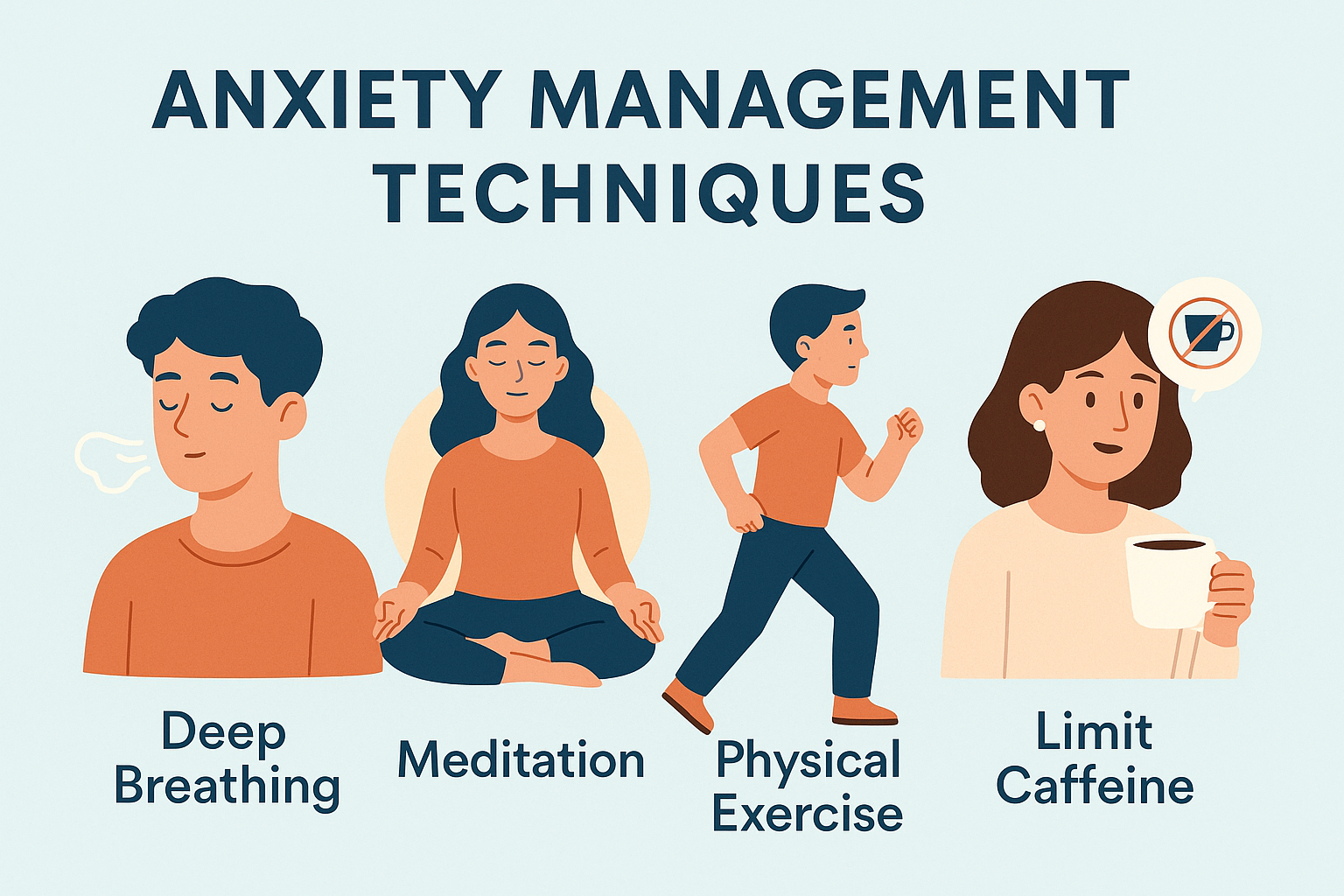
Anxiety Therapy: Regain Peace and Balance
If you're grappling with an anxiety disorder, it's natural to feel overwhelmed, so remember to be kind to yourself.
The pace and pressures of modern life make it seem like challenges are constantly coming our way. However, it's important to remember that we hold some power over our circumstances and can actively manage them.
In this blog post, we'll explore various anxiety therapy techniques designed to help you reclaim a sense of serenity and equilibrium.
What are Anxiety Disorders?
Anxiety disorders are a range of mental health issues marked by intense and ongoing anxiety, dread, or concern that notably disrupt an individual's daily life, relationships, and overall well-being.
For some, anxiety manifests as constant racing thoughts, while for others, it may result in physical symptoms like heart palpitations or sweating.
It's important to recognize that there isn't a one-size-fits-all approach when it comes to anxiety disorders. Each person may experience different symptoms and triggers, making personalized treatment essential. Factors such as genetics, brain chemistry, personality traits, and life events all play a role in the development of anxiety disorders. By gaining a deeper understanding of these factors, individuals can work towards managing their symptoms effectively.
What are the Types of Mental Wellness Techniques Explored in Anxiety Therapy?
In anxiety therapy, various mental wellness techniques are explored to help you manage and alleviate symptoms.
Some of the key coping mechanisms for anxiety include:
1. Cognitive-Behavioral Therapy (CBT): CBT is a widely used approach that focuses on identifying, understanding, and changing thinking and behavior patterns.
In anxiety therapy, CBT helps you challenge and reframe negative thoughts, beliefs, and attitudes that contribute to anxiety.
One of the key aspects of CBT is its practical approach. Therapists often assign homework assignments to help patients practice new skills outside therapy sessions. This hands-on approach can empower individuals to take control of their anxiety symptoms.
2. Mindfulness for Anxiety Relief: Mindfulness and meditation involve focusing on the present moment and becoming more aware of thoughts and feelings without judgment.
This can help reduce worries about the future or ruminations about the past, allowing you to experience greater peace and clarity.
3. Exposure Therapy: This technique is particularly useful for phobias and involves gradual, controlled exposure to the source of fear in a safe environment.
The goal is to desensitize you to the anxiety-provoking stimulus over time.
4. Acceptance and Commitment Therapy (ACT): ACT encourages you to accept your thoughts and feelings rather than fighting or feeling guilty about them.
It also focuses on committing to actions that align with personal values despite anxiety.
5. Interpersonal Therapy (IPT): Although more commonly used for depression, IPT can also be beneficial for anxiety, particularly when social anxiety or relationship issues contribute to the disorder.
IPT focuses on improving communication skills and building healthier relationships.
6. Dialectical Behavior Therapy (DBT): DBT provides skills in four key areas: mindfulness, distress tolerance, emotion regulation, and interpersonal effectiveness.
It's particularly useful for individuals who experience intense emotions alongside anxiety.
Get Effective Anxiety Therapy in Dallas, TX
At Beckloff Behavioral Health Center, we provide anxiety therapy to help you find inner peace and live a fulfilling life.
Here, you'll find a supportive and safe environment where you can openly talk about your concerns. We'll also provide you with effective coping strategies to manage your anxiety.
Book your appointment today.



